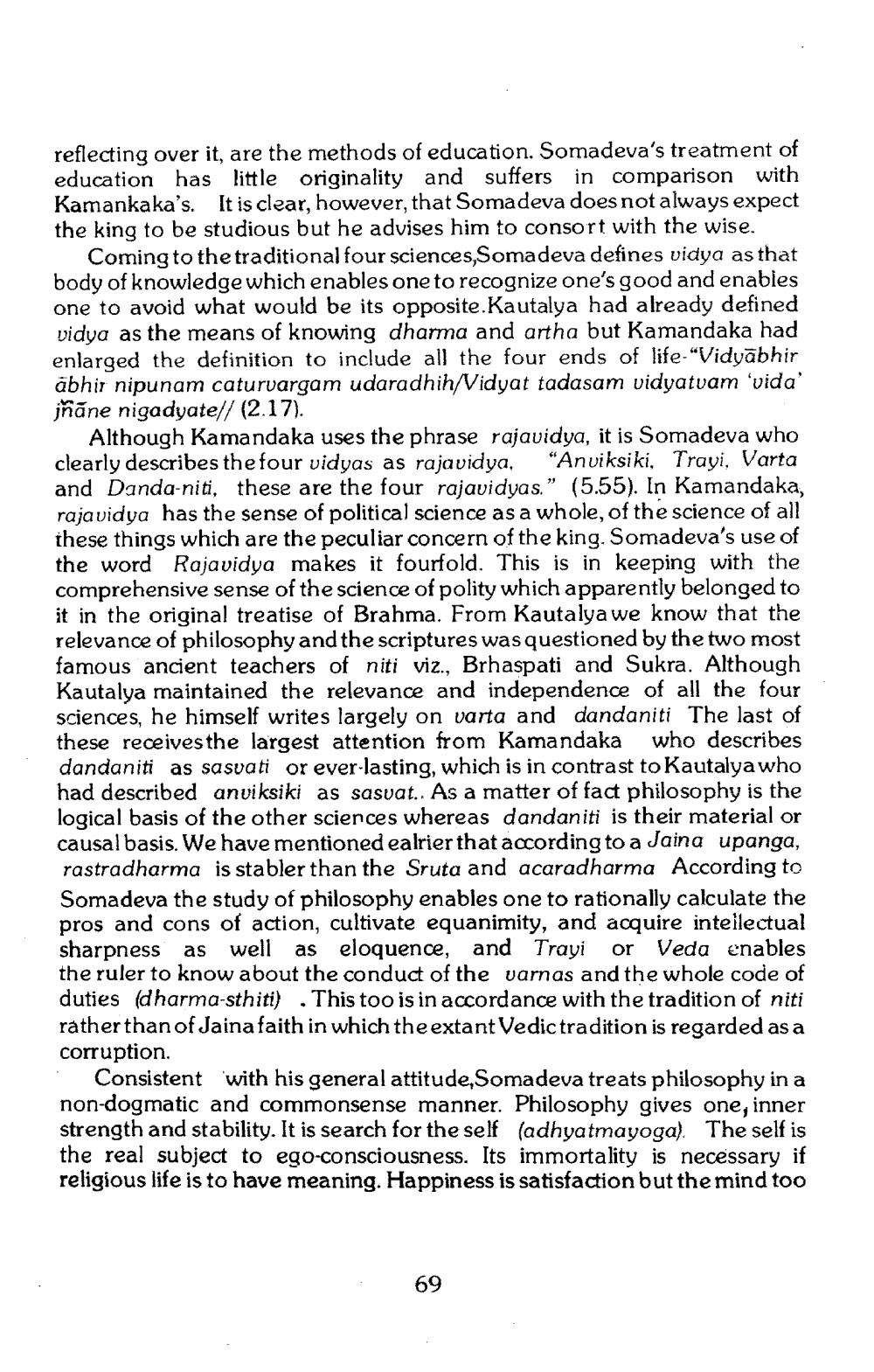________________
reflecting over it, are the methods of education. Somadeva's treatment of education has little originality and suffers in comparison with Kamankaka's. It is clear, however, that Somadeva does not always expect the king to be studious but he advises him to consort with the wise.
Coming to the traditional four sciences,Somadeva defines vidya as that body of knowledge which enables one to recognize one's good and enables one to avoid what would be its opposite.Kautalya had already defined vidya as the means of knowing dharma and artha but Kamandaka had enlarged the definition to include all the four ends of life-"Vidyabhir abhir nipunam caturvargam udaradhih/Vidyat tadasam vidyatuam 'vida' jnane nigadyate// (2.17).
Although Kamandaka uses the phrase rajavidya, it is Somadeva who clearly describes the four vidyas as rajavidya, "Anviksiki, Trayi, Varta and Danda-niti, these are the four rajavidyas." (5.55). In Kamandaka, rajavidya has the sense of political science as a whole, of the science of all these things which are the peculiar concern of the king. Somadeva's use of the word Rajavidya makes it fourfold. This is in keeping with the comprehensive sense of the science of polity which apparently belonged to it in the original treatise of Brahma. From Kautalya we know that the relevance of philosophy and the scriptures was questioned by the two most famous ancient teachers of niti viz., Brhaspati and Sukra. Although Kautalya maintained the relevance and independence of all the four sciences, he himself writes largely on varta and dandaniti The last of these receives the largest attention from Kamandaka who describes dandaniti as sasvati or ever-lasting, which is in contrast to Kautalya who had described anviksiki as sasvat.. As a matter of fact philosophy is the logical basis of the other sciences whereas dandaniti is their material or causal basis. We have mentioned ealrier that according to a Jaina upanga, rastradharma is stabler than the Sruta and acaradharma According to Somadeva the study of philosophy enables one to rationally calculate the pros and cons of action, cultivate equanimity, and acquire intellectual sharpness as well as eloquence, and Trayi or Veda enables the ruler to know about the conduct of the varnas and the whole code of duties (dharma-sthiti) This too is in accordance with the tradition of niti rather than of Jaina faith in which the extant Vedic tradition is regarded as a corruption.
Consistent with his general attitude,Somadeva treats philosophy in a non-dogmatic and commonsense manner. Philosophy gives one, inner strength and stability. It is search for the self (adhyatmayoga). The self is the real subject to ego-consciousness. Its immortality is necessary if religious life is to have meaning. Happiness is satisfaction but the mind too
69




